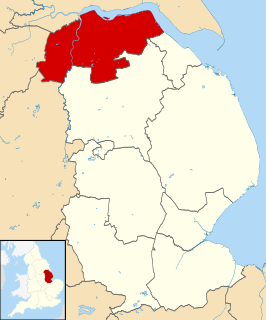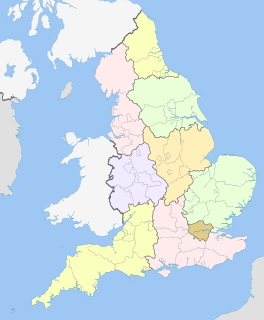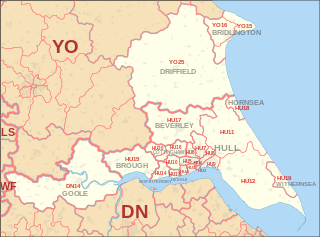Local Government Yorkshire and Humber (LGYH) was the partnership of local authorities, including fire, police and national park authorities, across Yorkshire and Humber. It had links to the Local Government Association at national level and incorporated the regional employers organisation for Yorkshire and Humber.

The police are a constituted body of persons empowered by a state to enforce the law, to protect the lives, liberty and possessions of citizens, and to prevent crime and civil disorder. Their lawful powers include arrest and the legitimized use of force. The term is most commonly associated with the police forces of a sovereign state that are authorized to exercise the police power of that state within a defined legal or territorial area of responsibility. Police forces are often defined as being separate from the military and other organizations involved in the defense of the state against foreign aggressors; however, gendarmerie are military units charged with civil policing. Police forces are usually public sector services, funded through taxes.

A national park is a park in use for conservation purposes. Often it is a reserve of natural, semi-natural, or developed land that a sovereign state declares or owns. Although individual nations designate their own national parks differently, there is a common idea: the conservation of 'wild nature' for posterity and as a symbol of national pride.

The Local Government Association (LGA) is an organisation which comprises local authorities in England and Wales. The LGA seeks to promote better local government; it maintains communication between officers in different local authorities to develop best practice. It also represents the interests of local government to national government. 435 authorities are members of the LGA as of 2016, including 349 English councils and the 22 Welsh councils via the Welsh LGA, as well number of smaller authorities including fire authorities and national parks. The Chief Executive is Mark Lloyd.
It brought local authorities together on key issues, supported the improvement of service delivery, influenced Government on the future of local government, promoted good employment practices, and worked with local authorities to improve the public perception and understanding of local government.
A government is the system or group of people governing an organized community, often a state.
A local government is a form of public administration which, in a majority of contexts, exists as the lowest tier of administration within a given state. The term is used to contrast with offices at state level, which are referred to as the central government, national government, or federal government and also to supranational government which deals with governing institutions between states. Local governments generally act within powers delegated to them by legislation or directives of the higher level of government. In federal states, local government generally comprises the third tier of government, whereas in unitary states, local government usually occupies the second or third tier of government, often with greater powers than higher-level administrative divisions.

Employment is a relationship between two parties, usually based on a contract where work is paid for, where one party, which may be a corporation, for profit, not-for-profit organization, co-operative or other entity is the employer and the other is the employee. Employees work in return for payment, which may be in the form of an hourly wage, by piecework or an annual salary, depending on the type of work an employee does or which sector they are working in. Employees in some fields or sectors may receive gratuities, bonus payment or stock options. In some types of employment, employees may receive benefits in addition to payment. Benefits can include health insurance, housing, disability insurance or use of a gym. Employment is typically governed by employment laws, organisation or legal contracts.
Local Government Yorkshire and Humber closed in March 2015. [1]









